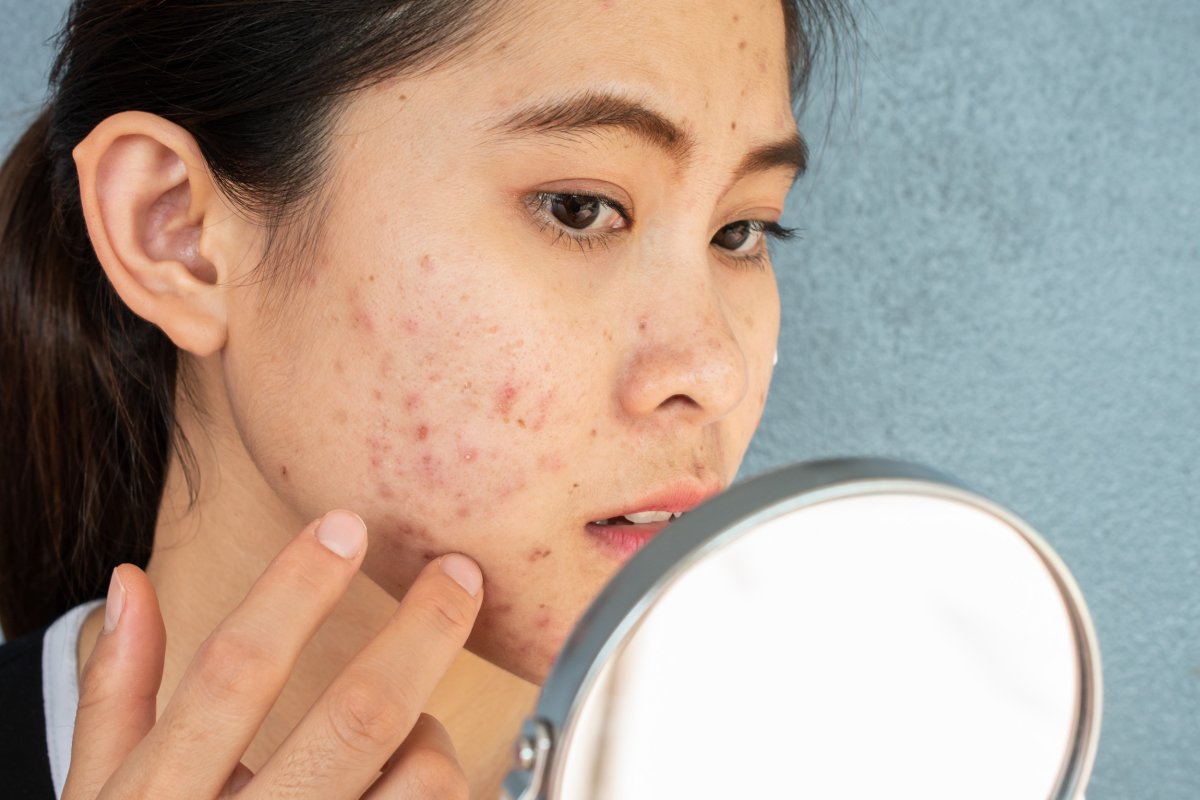Trends come and go for teenagers and pre-teens, but a recent surge of interest in anti-aging skincare might be harming their skin.
The internet has been awash with videos of young girls aged as young as 10 or 11 roaming around stores like Sephora, purchasing expensive and potent anti-aging skincare products containing ingredients like retinol and exfoliating acids.
Now, dermatologists are warning preteens and their parents that these products may actually be damaging their youthful skin.
Many of these tweens and teens have gotten into skincare after watching TikToks from their favorite creators, who have a detailed skincare regimen consisting of a cocktail of expensive brands such as Drunk Elephant or Fenty. However, using these strong products together has begun to cause damage, with many reporting outbreaks of eczema, rashes, and acne.

"Many products have what we call 'active' ingredients — like salicylic acid, retinols, peptides. They are more suitable for mature skin to target wrinkles or skin with specific concerns like acne. But for tweens and teens, these ingredients can do damage, irritate the skin and cause the reverse effects they are hoping to achieve," Carol Cheng, an assistant clinical professor of dermatology and board-certified dermatologist and pediatric dermatologist at UCLA Health, said in a statement.
As we get older, the amount of collagen our skin produces slowly wanes, leading to the development of wrinkles. On adult skin, retinol helps slow the process of aging by increasing the production of collagen in the skin, which reduces fine lines over time. However, before a person reaches their twenties, collagen has not yet begun to dwindle, making retinol redundant.
"Some ingredients, such as the popular choice, retinol, can increase the skin's sensitivity to sunlight, especially in the first few weeks of use. The risk increases when products containing a higher concentration of retinol [are] used. We usually recommend sufficient sun protection for adult users of retinol-based products. This 'safety' message could quite possibly not be passed on when kids view these over social media," Szu Shen Wong, a lecturer in pharmaceutical science at Keele University told Newsweek.
"Others can contain very harsh chemicals—exfoliating acids which are meant to remove the top layer of the skin (usually targeting the dead skin cell layer). Inappropriate use on skin that does not require such treatment (and on sensitive skin) is likely to be damaging."
Many young people mix ingredients to create a "skincare smoothie," which can alter the pH of the products and result in skin irritation. Additionally, using retinol improperly, i.e. in the morning or without sun protection, can result in increased sun damage to the skin.

Experts recommend that younger people interested in skincare stick to a basic routine that avoids stronger ingredients.
"A simple and practical routine is best. Cleanse the face once or twice a day with a gentle facial cleanser. Drugstore brands (Cetaphil, for example) are fine. Apply a 'broad spectrum' sunscreen with an SPF of 30 or greater every morning is of utmost importance. At nighttime, add a facial moisturizer if the skin seems dry. That's it," Cheng said.
Using sun protection is the bastion of skincare, the experts say and is a way for younger people who are concerned about wrinkles to avoid premature aging of the skin.
"Choose formulations that are already formulated for children (e.g., sunscreen) and choose products with moisturizers with fewer additives that can be skin irritants and sensitizers—fragrances, etc. (and only if a moisturizer is really necessary)," Wong said.
"The best skincare for tweens, in my opinion, is not one you apply on the skin, but you will most certainly see the glow of healthy skin if followed: sufficient sleep, adequate hydration and a good diet. There is no skincare product that can reverse the harm from the lack of sufficient good quality sleep, dehydration and malnutrition."
Do you have a tip on a science story that Newsweek should be covering? Do you have a question about skincare? Let us know via science@newsweek.com.
Update 2/5/24, 1:33 p.m. ET: This article was updated with comment from Szu Shen Wong.
Uncommon Knowledge
Newsweek is committed to challenging conventional wisdom and finding connections in the search for common ground.
Newsweek is committed to challenging conventional wisdom and finding connections in the search for common ground.
About the writer
Jess Thomson is a Newsweek Science Reporter based in London UK. Her focus is reporting on science, technology and healthcare. ... Read more
To read how Newsweek uses AI as a newsroom tool, Click here.





